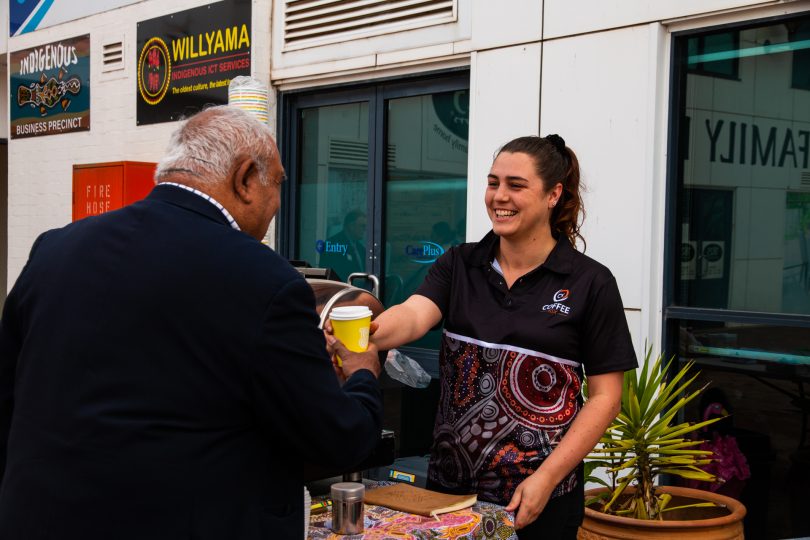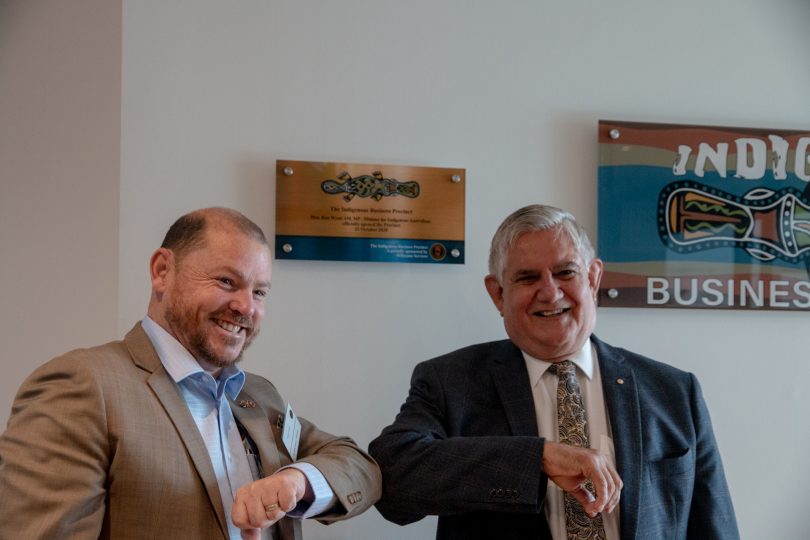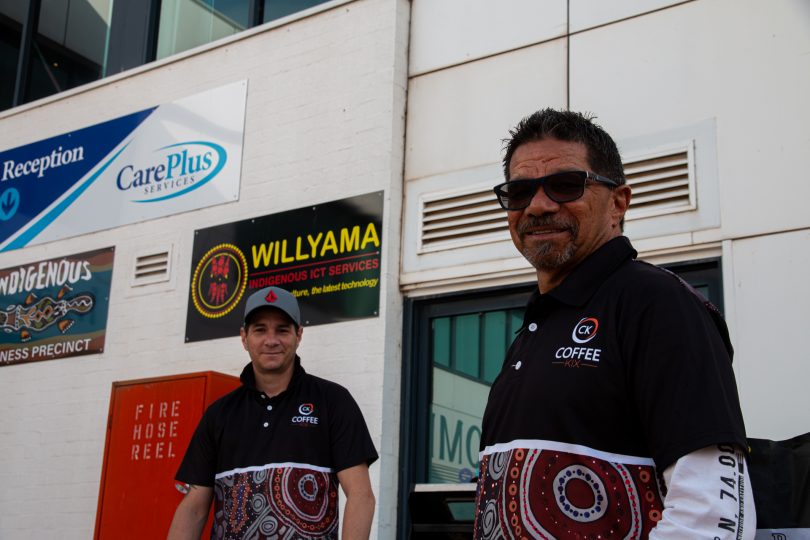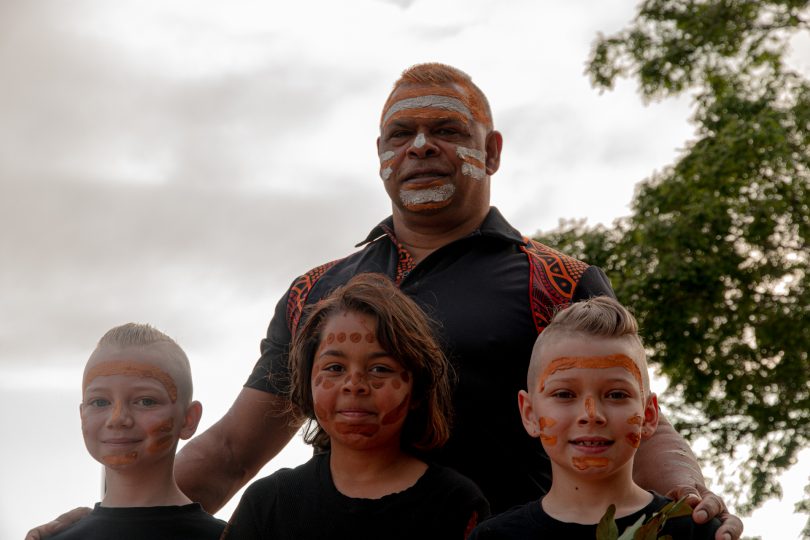
Coffee Kix at the Indigenous Business Precinct. Photo: Dominic Giannini.
As a child of the Stolen Generation who used to hunt rabbits to feed his family, Minister for Indigenous Australians Ken Wyatt knows how important opportunity and leadership are for Indigenous and Torres Strait Islander people, which is why he was on hand to open Canberra’s first Indigenous Business Precinct this week.
The new Precinct in Fyshwick will assist Indigenous businesses to move into their own professional premises, and provide mentoring and direction for small businesses.
“When you believe in what you want to strive for when establishing a business, you bring with you the right people to make it work,” Mr Wyatt said.
“As you expand within a precinct and bring others with you, you allow other Indigenous people to see models of success and those models become a reality when they look and see an Indigenous leader – that is where the power of influence comes from.
“We can give people jobs and a sense of belonging, but when you give them a sense of pride, hope and the opportunity that they too can achieve the same as you have, that makes an incredible difference in the way that we reach tentacles into areas of economic endeavour.”

Kieran Hynes and Ken Wyatt opened the Indigenous Business Precinct in Fyshwick this week. Photo: Dominic Giannini.
Oliver Kickett owns Coffee Kix, an Indigenous-run coffee van, and knows first hand how guidance and mentorship can empower people.
“These sorts of things are creating pathways. If a young kid out there is thinking ‘I would like to start a business but how do I go about it?’, this is an ideal opportunity to talk to somebody and watch an idea grow,” he said.
“Quite often people do not have the financial resources, connections or the backing to make their business work.
“[The Precinct can] encourage those that are thinking about small businesses. You can set it up here and people will just give you advice, help you, refer you onto people who can help.”
While the precinct is a Canberra first, Indigenous precincts already exist in other states. Eventually, Mr Kickett wants to see all the precincts link up and form a single body instead of decentralised hubs.
“The natural progression for me would be that they all form one sort of body and have a peak body that has representatives from each of the states and territories,” he said.
“That way you have a lot of people with experience and expertise to go to the government, and the minister can meet with people who would not get in his diary for love or money.”

Oliver Kickett (right) runs the Coffee Kix van with his son. Photo: Dominic Giannini.
Supported by Willyama, a majority Indigenous-owned business which provides ICT and cyber services in Australia, the Precinct offers cost reductions for small businesses and greater access to government contracts through the Indigenous Procurement Policy (IPP).
The IPP allocates 3 per cent of Commonwealth Government contracts to Indigenous-owned businesses to “to drive demand for Indigenous goods and services, stimulate Indigenous economic development and grow the Indigenous business sector”.
Talking about his personal situation, Willyama owner and Worimi man Kieran Hynes said his first-hand experiences of disadvantage and systemic inequality drive him to support the Indigenous community and make a difference.
“I have siblings who have spent most of their adult lives in prison, siblings who have then adopted the children left behind, and others who have had long-standing drug abuse habits,” he said.
“I have family members who continue to experience significant health issues that are significantly overrepresented in the Indigenous communities.

Billy Thompkins was invited to perform a smoking ceremony with his children to consecrate the precinct. Photo: Dominic Giannini.
“Our social approach is part of our broad ‘Reconciliation in Action’ program. We started looking at initiatives that would make the most impact, more intensely as the consequences of the global pandemic have become more obvious.”
Australian Small Business and Family Enterprise Ombudsman Kate Carnell said the power of the new precinct comes from the initiative focusing on the lack of expertise, support and mentoring that can impact the viability of Indigenous businesses.
“We do not have exact data but anecdotally Indigenous businesses have a higher failure rate,” Ms Carnell said.
“Procurement is great but the dilemma is many Indigenous owners have very little experience in running a business or support and that is why this initiative is so great.
“It made me focus and say ‘why hasn’t this been done [in Canberra] before? What else can we do now? What’s next?’
“There will be lots of Canberran businesses who would love to help.”
More than 2,100 contracts have been awarded to over 2,000 Indigenous businesses since 2015 and generated an estimated $3 billion in economic activity.
Original Article published by Dominic Giannini on The RiotACT.


What's Your Opinion?